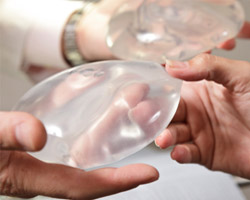FDA's Discussion And Update On Breast Implants
Posted On: June 24, 2011 Author: The Office of Dr. Stuart Linder Posted In: Breast Implants, Breast Revision, Breast topics, Media
 On June 22, 2011, the updates included silicone breast implants are mostly safe. The most important considerations that they determine are that the silicone and saline implants are safe; however, these implants are not lifetime devices and that they must be replaced and on the average, 8 to 10 years. The studies have shown 40 to 70 percent of women who undergo breast reconstruction will under revision surgery in 8 to 10 years, while 20 to 40 percent of patients who have cosmetic elective augmentation mammoplasty will undergo secondary surgery in the next decade.�
On June 22, 2011, the updates included silicone breast implants are mostly safe. The most important considerations that they determine are that the silicone and saline implants are safe; however, these implants are not lifetime devices and that they must be replaced and on the average, 8 to 10 years. The studies have shown 40 to 70 percent of women who undergo breast reconstruction will under revision surgery in 8 to 10 years, while 20 to 40 percent of patients who have cosmetic elective augmentation mammoplasty will undergo secondary surgery in the next decade.�
The most common side-effects found by the FDA include scar tissue around the implant (also referred to as capsular contracture), visibility and palpability of the sides of the implant which also may be associated with scar tissue. Also problems they have found include rupture, wrinkling and a lopsided appearance, according to the report.
All of this study information was found through two U.S. Manufacturers, Allergan Pharmaceuticals and Johnson and Johnson (Mentor Corporation). They also found that 15% of the women enrolled in a thousand-patient study of Mentor were accounted for over eight years, but 42% were not accounted for. In other words, there was a significant drop-off of women who remained in the study and therefore final conclusive information was difficult to achieve. There has also been a small incidence of a cancer, referred to as anoplastic large cell lymphoma (ALCL) which there have been 60 cases out of 10 million women with breast implants. This is a very, very rare cancer, but women should be aware of the very low risk of this tumor.�
Finally, they indicated that most women have reported very high levels of satisfaction with body image, shape, feel and size of their implants. Women must monitor their breasts for the rest of their lives to make sure there are no problems.